Best of 2018: Classical concerts | reviews, news & interviews
Best of 2018: Classical concerts
Best of 2018: Classical concerts
Abundant megatalent in works great and small
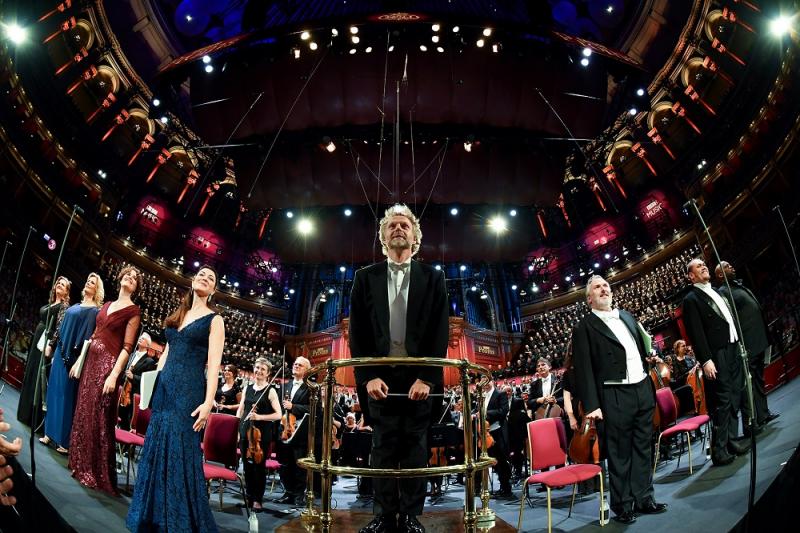
Starry times with the big spectaculars really paid off this year, even if the works performed weren't unusual for London. Pappano's latest Verdi Requiem at the Royal Opera was the classiest perfection imaginable, crowned by the phenomenal Lise Davidsen.
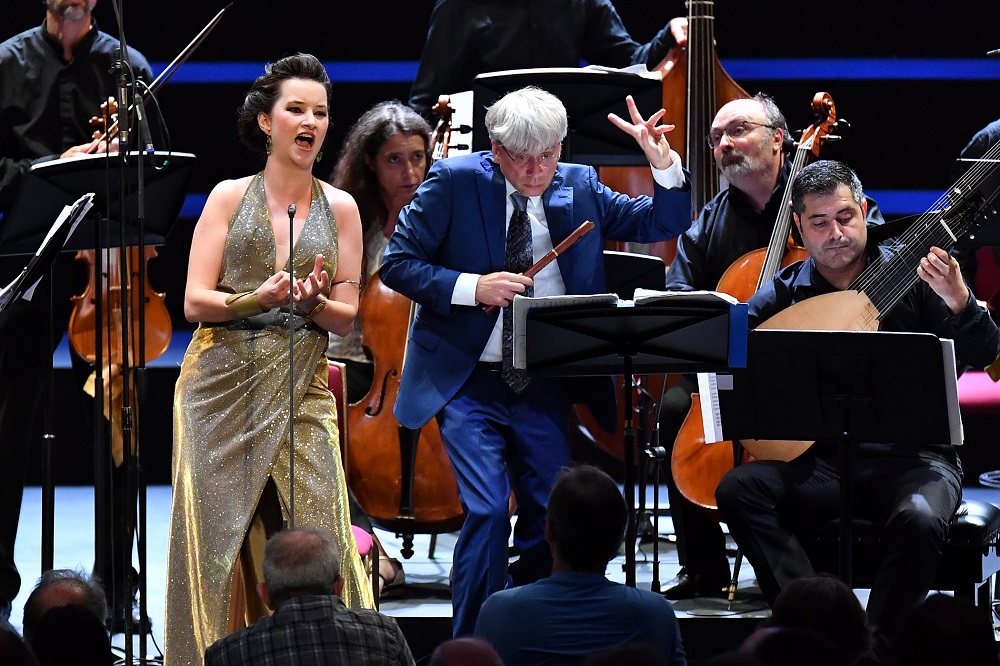 At the other end of the scale was a bewitching late night music-drama of Dido and Cleopatra characterisations from Anna Prohaska and the equally live-wire Il Giardino Armonico under Giovanni Antonini. Though the Proms programming looked safer than usual - a generalisation to which there were plenty of exceptions - its zenith was righly the co-ordinated weekend shared by Berlin Philharmonic nd Boston Symphony respectively showing off their grand masters. The Andris Nelsons concert I heard yielded a surprisingly tame Shostakovich Four, but Kirill Petrenko urged new life and burning phrasing from the Berliners, and succeeded in getting a colossal late-romantic rarity past the gates, Schmidt's Fourth Symphony, to rival the success of the opposite-pole Second from the Viennese and Bychkov several years earlier.
At the other end of the scale was a bewitching late night music-drama of Dido and Cleopatra characterisations from Anna Prohaska and the equally live-wire Il Giardino Armonico under Giovanni Antonini. Though the Proms programming looked safer than usual - a generalisation to which there were plenty of exceptions - its zenith was righly the co-ordinated weekend shared by Berlin Philharmonic nd Boston Symphony respectively showing off their grand masters. The Andris Nelsons concert I heard yielded a surprisingly tame Shostakovich Four, but Kirill Petrenko urged new life and burning phrasing from the Berliners, and succeeded in getting a colossal late-romantic rarity past the gates, Schmidt's Fourth Symphony, to rival the success of the opposite-pole Second from the Viennese and Bychkov several years earlier.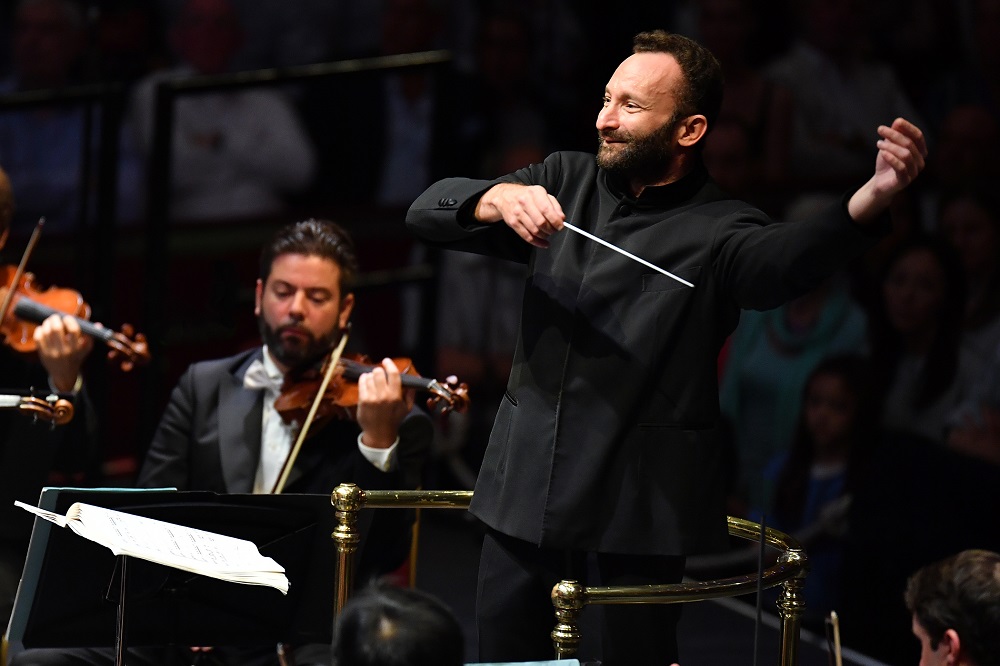
But so they are, too, with Sakari Oramo and the BBC Symphony Orchestra on consistently top form for the fourth year running, chiefly in a perfect 1940s programme framing sensational, dancing Martin Fröst in Copland's Clarinet Concerto with Shostakovich and Prokofiev symphonies, and the return of Mirga Gražinytė-Tyla to the City of Birmingham Symphony Orchestra from maternity leave at the end of the year, not easing back in but going for the heights of Shostakovich's Fifteenth and a near-masterpiece of utter intergrity from his pupil Mieczyslaw Weinberg: a choice of Richard Bratby too, who was also lucky enough to catch Mirga's Lili Boulanger in Birmingham before her time off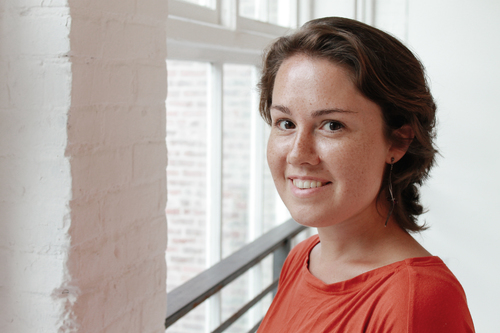 Bernard Hughes and David Benedict turn us briefly in the direction of more recent innovations (the only new works to tickle my fancy, other than those by a master exponent of the string quartet, Caroline Shaw - see below, and pictured left - were relatively short ones in the various foursomes of the BBC Young Musician at 40 Prom and the London Sinfonietta's FIrst World War tributes at the Roundhouse). Bernard chooses Graham Ross conducting the Dmitri Ensemble at St John’s Smith Square in a programme of American minimalism for strings and Anna Meredith presenting her crossover album Varmints with the accompaniment of the Southbank Sinfonia alongside her regular ensemble. I envy David catching the premiere of Cheryl Frances-Hoad's Last Man Standing, premiered by Marcus Farnsworth and the BBCSO under Martyn Brabbins - sadly one we missed - and from everything I've heard of hers I concur that she is indeed that rarity, "a composer who understands how to write not just for the voice but also dramatically".
Bernard Hughes and David Benedict turn us briefly in the direction of more recent innovations (the only new works to tickle my fancy, other than those by a master exponent of the string quartet, Caroline Shaw - see below, and pictured left - were relatively short ones in the various foursomes of the BBC Young Musician at 40 Prom and the London Sinfonietta's FIrst World War tributes at the Roundhouse). Bernard chooses Graham Ross conducting the Dmitri Ensemble at St John’s Smith Square in a programme of American minimalism for strings and Anna Meredith presenting her crossover album Varmints with the accompaniment of the Southbank Sinfonia alongside her regular ensemble. I envy David catching the premiere of Cheryl Frances-Hoad's Last Man Standing, premiered by Marcus Farnsworth and the BBCSO under Martyn Brabbins - sadly one we missed - and from everything I've heard of hers I concur that she is indeed that rarity, "a composer who understands how to write not just for the voice but also dramatically".
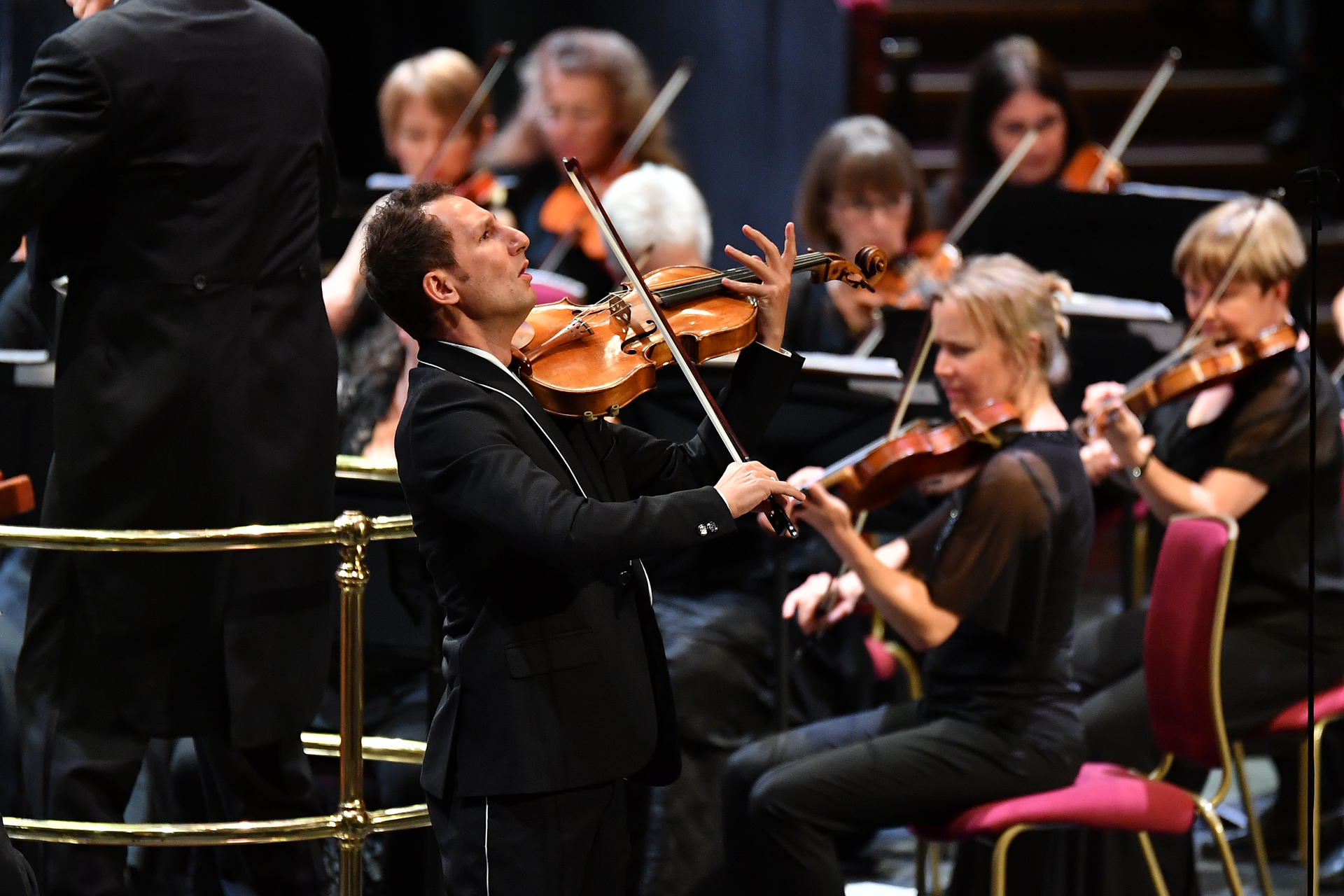
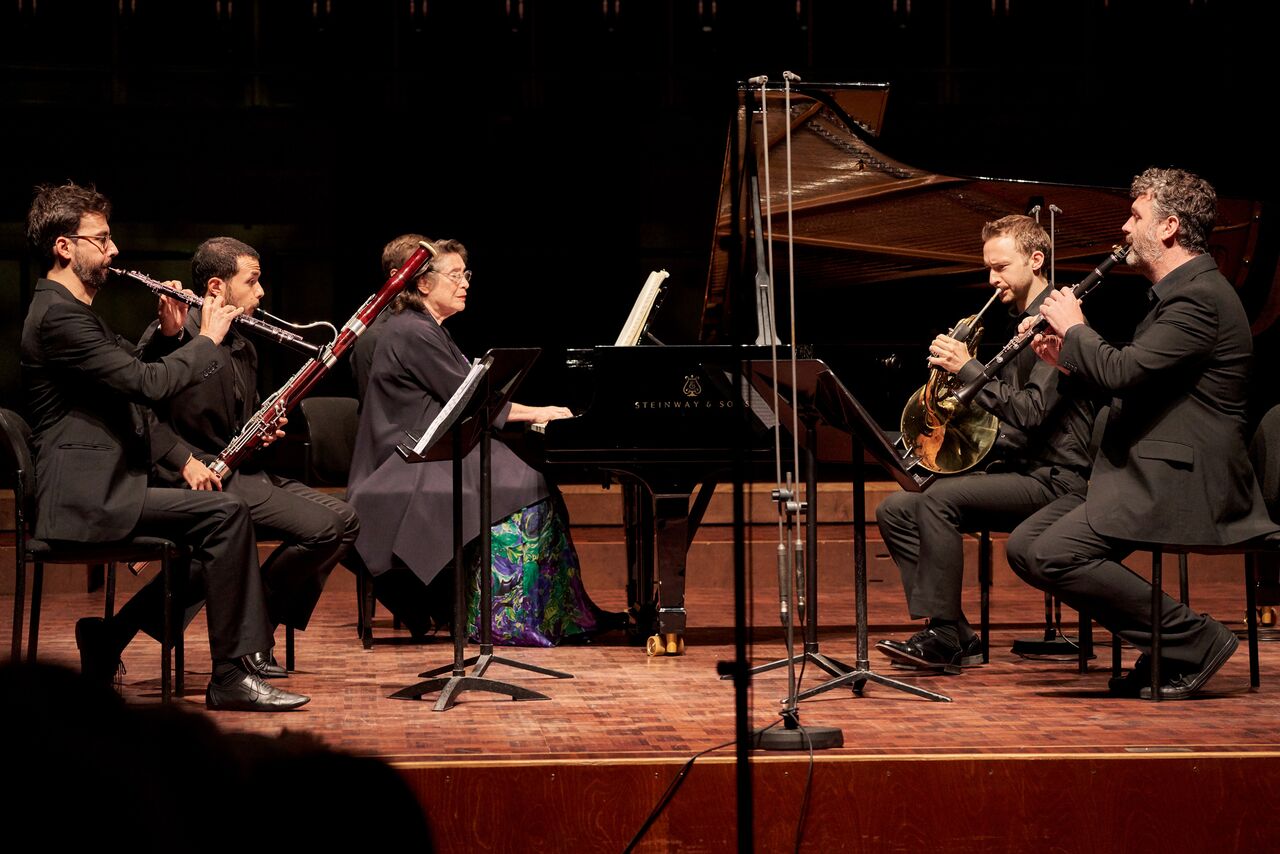 Alexandra's second choice is chamber music writ large in the personalities of the Jansen/Maisky/Argerich Trio in an "opulent" Barbican special. An equal great, Elisabeth Leonskaja, was merely first among less big names, but no less fine musicians, in a performance of Beethoven's Quintet for piano and wind during the Estonian Festival Orchestra's annual residential week at the Pärnu Festival with Paavo Järvi (pictured above by Kaupo Kikkas, Leonskaja, José Luis Garcia Vegara, Jesús Villa Ordóñez, Alec Frank-Gemmill and Matthew Hunt). Front-desk violinist Triin Ruubel, not joining the orchestra on their first visit to the Proms and Hamburg because of advanced pregnancy but present in Pärnu, said it was the most perfect chamber-music performance she's ever heard, so at least any apparent hyperbole isn't just mine. Would that Leonskaja had accompanied the EFO to London in the Grieg Piano Concerto they shared in Estonia rather than the wilful Khatia Buniatishvili in the same concerto, but at least the Proms audience got to hear the perfect jewellery of Arvo Pärt's Third Symphony, as in Pärnu, and spry appearances from Estonian's best-known octogenarian delighted spectators in both venues.
Alexandra's second choice is chamber music writ large in the personalities of the Jansen/Maisky/Argerich Trio in an "opulent" Barbican special. An equal great, Elisabeth Leonskaja, was merely first among less big names, but no less fine musicians, in a performance of Beethoven's Quintet for piano and wind during the Estonian Festival Orchestra's annual residential week at the Pärnu Festival with Paavo Järvi (pictured above by Kaupo Kikkas, Leonskaja, José Luis Garcia Vegara, Jesús Villa Ordóñez, Alec Frank-Gemmill and Matthew Hunt). Front-desk violinist Triin Ruubel, not joining the orchestra on their first visit to the Proms and Hamburg because of advanced pregnancy but present in Pärnu, said it was the most perfect chamber-music performance she's ever heard, so at least any apparent hyperbole isn't just mine. Would that Leonskaja had accompanied the EFO to London in the Grieg Piano Concerto they shared in Estonia rather than the wilful Khatia Buniatishvili in the same concerto, but at least the Proms audience got to hear the perfect jewellery of Arvo Pärt's Third Symphony, as in Pärnu, and spry appearances from Estonian's best-known octogenarian delighted spectators in both venues.
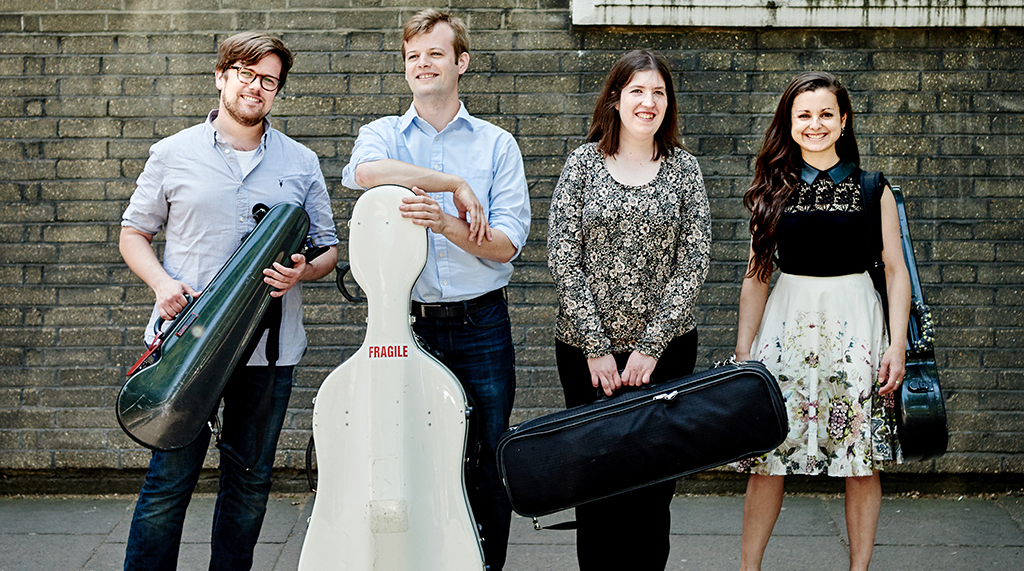 My other essential among festivals, in the East Neuk of Scotland, had Jean-Guihen Queyras's Bach cello suites in a day as its core, and confirmation that the young Castalian Quartet (pictured right) is the new force to be reckoned with on the scene. They introduced me to an amazing recent work by American Caroline Shaw, whose knack for moving in unprectable but somehow logical ways was further revealed by the Calidore Quartet in a lunchtime Prom. Electrifying younger generation pianism? Pavel Kolesnikov again, both in solo recital - fearing no immediate comparisons with Nikolai Lugansky - and together with his regular duo partner Samson Tsoy, who also got to shine alone in lucid Schubert and Schumann on the Ligurian coast.
My other essential among festivals, in the East Neuk of Scotland, had Jean-Guihen Queyras's Bach cello suites in a day as its core, and confirmation that the young Castalian Quartet (pictured right) is the new force to be reckoned with on the scene. They introduced me to an amazing recent work by American Caroline Shaw, whose knack for moving in unprectable but somehow logical ways was further revealed by the Calidore Quartet in a lunchtime Prom. Electrifying younger generation pianism? Pavel Kolesnikov again, both in solo recital - fearing no immediate comparisons with Nikolai Lugansky - and together with his regular duo partner Samson Tsoy, who also got to shine alone in lucid Schubert and Schumann on the Ligurian coast.
David Kettle was dazzled at the Edinburgh Festival by Messiaen's Des canyons aux étoiles, conducted as in the Lucerne Easter Festival concert I heard earlier in the year by Matthias Pintscher, this sometimes over-long feeling epic whizzed by. I knew I had to return to Lucerne in the summer to catch Bernard Haitink, revelatory guiding young conductors in masterclasses at the Easter Festival, applying gentle but decisive pressure points to Beethoven "Pastoral" Symphony with the Chamber Orchestra of Europe; a beautifully shaped, ethereal piece of assured music-making. May he be fighting fit again for his 90th birthday concerts with the LSO in March.
Explore topics
Share this article
Add comment
The future of Arts Journalism
You can stop theartsdesk.com closing!
We urgently need financing to survive. Our fundraising drive has thus far raised £49,000 but we need to reach £100,000 or we will be forced to close. Please contribute here: https://gofund.me/c3f6033d
And if you can forward this information to anyone who might assist, we’d be grateful.

Subscribe to theartsdesk.com
Thank you for continuing to read our work on theartsdesk.com. For unlimited access to every article in its entirety, including our archive of more than 15,000 pieces, we're asking for £5 per month or £40 per year. We feel it's a very good deal, and hope you do too.
To take a subscription now simply click here.
And if you're looking for that extra gift for a friend or family member, why not treat them to a theartsdesk.com gift subscription?
more Classical music
 Bizet in 150th anniversary year: rich and rare French offerings from Palazzetto Bru Zane
Specialists in French romantic music unveil a treasure trove both live and on disc
Bizet in 150th anniversary year: rich and rare French offerings from Palazzetto Bru Zane
Specialists in French romantic music unveil a treasure trove both live and on disc
 Scottish Chamber Orchestra, Ibragimova, Queen’s Hall, Edinburgh review - rarities, novelties and drumrolls
A pity the SCO didn't pick a better showcase for a shining guest artist
Scottish Chamber Orchestra, Ibragimova, Queen’s Hall, Edinburgh review - rarities, novelties and drumrolls
A pity the SCO didn't pick a better showcase for a shining guest artist
 Kilsby, Parkes, Sinfonia of London, Wilson, Barbican review - string things zing and sing in expert hands
British masterpieces for strings plus other-worldly tenor and horn - and a muscular rarity
Kilsby, Parkes, Sinfonia of London, Wilson, Barbican review - string things zing and sing in expert hands
British masterpieces for strings plus other-worldly tenor and horn - and a muscular rarity
 From Historical to Hip-Hop, Classically Black Music Festival, Kings Place review - a cluster of impressive stars for the future
From quasi-Mozartian elegance to the gritty humour of a kitchen inspection
From Historical to Hip-Hop, Classically Black Music Festival, Kings Place review - a cluster of impressive stars for the future
From quasi-Mozartian elegance to the gritty humour of a kitchen inspection
 Shibe, LSO, Adès, Barbican review - gaudy and glorious new music alongside serene Sibelius
Adès’s passion makes persuasive case for the music he loves, both new and old
Shibe, LSO, Adès, Barbican review - gaudy and glorious new music alongside serene Sibelius
Adès’s passion makes persuasive case for the music he loves, both new and old
 Anja Mittermüller, Richard Fu, Wigmore Hall review - a glorious hall debut
The Austrian mezzo shines - at the age of 22
Anja Mittermüller, Richard Fu, Wigmore Hall review - a glorious hall debut
The Austrian mezzo shines - at the age of 22
 First Person: clarinettist Oliver Pashley on the new horizons of The Hermes Experiment's latest album
Compositions by members of this unusual quartet feature for the first time
First Person: clarinettist Oliver Pashley on the new horizons of The Hermes Experiment's latest album
Compositions by members of this unusual quartet feature for the first time
 Gesualdo Passione, Les Arts Florissants, Amala Dior Company, Barbican review - inspired collaboration excavates the music's humanity
At times it was like watching an anarchic religious procession
Gesualdo Passione, Les Arts Florissants, Amala Dior Company, Barbican review - inspired collaboration excavates the music's humanity
At times it was like watching an anarchic religious procession
 Classical CDs: Camels, concrete and cabaret
An influential American composer's 90th birthday box, plus British piano concertos and a father-and-son duo
Classical CDs: Camels, concrete and cabaret
An influential American composer's 90th birthday box, plus British piano concertos and a father-and-son duo
 Cockerham, Manchester Camerata, Sheen, Martin Harris Centre, Manchester review - re-enacting the dawn of modernism
Two UK premieres added to three miniatures from a seminal event of January 1914
Cockerham, Manchester Camerata, Sheen, Martin Harris Centre, Manchester review - re-enacting the dawn of modernism
Two UK premieres added to three miniatures from a seminal event of January 1914
 Kempf, Brno Philharmonic, Davies, Bridgewater Hall, Manchester review - European tradition meets American jazz
Bouncing Czechs enjoy their Gershwin and Brubeck alongside Janáček and Dvořák
Kempf, Brno Philharmonic, Davies, Bridgewater Hall, Manchester review - European tradition meets American jazz
Bouncing Czechs enjoy their Gershwin and Brubeck alongside Janáček and Dvořák
 Solomon, OAE, Butt, QEH review - daft Biblical whitewashing with great choruses
Even a top soprano and mezzo can’t make this Handel paean wholly convincing
Solomon, OAE, Butt, QEH review - daft Biblical whitewashing with great choruses
Even a top soprano and mezzo can’t make this Handel paean wholly convincing

Comments
What a nice year, David Nice!